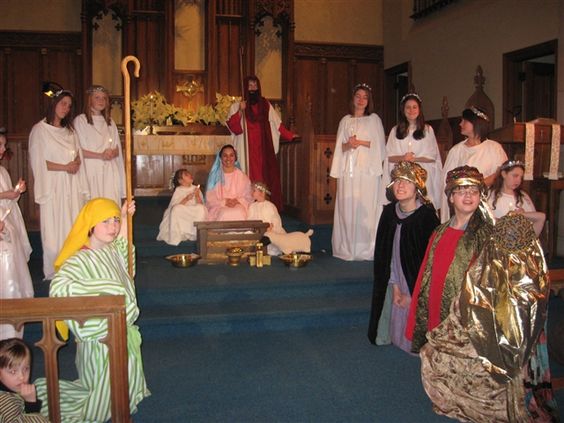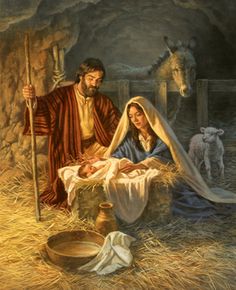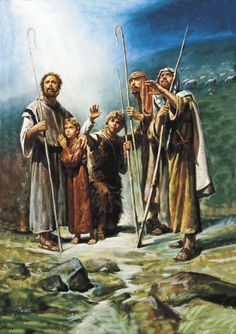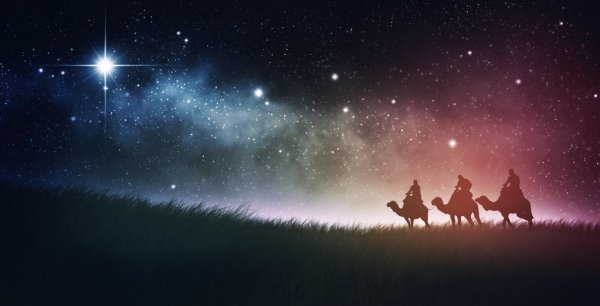
When my sisters and I were youngsters, our family attended a German language Mennonite church. Although I had only a rudimentary grasp of the language, at Christmas I did get caught up in the excitement of the festivities, pageantry and food. On Christmas Eve the church was filled to capacity and children enacted the events leading to the birth of Jesus, the Messiah Jews had long waited for. For a short time I was transported back to an earlier, simpler time. There was magic in the air.
Now, when I go into a mall and hear renditions of Jingle Bells, I Saw Mommy Kissing Santa Claus and other Christmas tunes, I’m aware of a vast chasm between my early experience of Christmas and the present commercial version. The anxious scrambling to find appropriate gifts suggests to me I’ve entered an alien culture which has no mystery, no magic, and no soul.
Hoping to regain a sense of the earlier mystique I experienced many years ago, last week I reviewed the events of Christmas as I had seen them depicted on stage when I was a kid. To do this, I needed to let go of the present and enter a world with values and practises quite foreign to me. I also needed to accept the possibility of the miraculous.
At that time Caesar Augustus ruled over the far flung Roman Empire and Herod the Great was king of Palestine (Judea). The empire was a cauldron of suspicion, intrigue and treachery. Seeking protection from evil, rulers at various levels built temples and shrines to a plethora of gods. To enhance their image and standing with the people, they sought to be identified with these gods. Herod had a well deserved reputation for savagery, having ordered the slaying of rivals and also members of his own family.
The story of Christmas began when the angel Gabriel appeared to Mary and announced that the Holy Spirit would “overshadow” her and cause her to become pregnant. Although she was a virgin and had not slept with Joseph, to whom she was betrothed but not yet officially married, she would bear a son who would bring hope to the people. She was to name him Jesus. Not long after, Caesar Augustus issued a decree compelling all citizens to return to their place of birth to be registered for taxation and military service. Mary was already “heavy with child” when she, riding a donkey, and Joseph embarked on the approximately three day journey to Bethlehem, a small town in the hill country of Judea.
Arriving in Bethlehem, they found the town clogged with people, horses, donkeys and camels. Joseph searched for accommodation for himself and the weary, pregnant Mary. At each door he was told, “the inn is full. We have no room for you.” He was relieved when a compassionate innkeeper looked at Mary and said, “We have no space for you, but if you like, you can stay in the stable behind the inn.” It was in this stable, amidst hay, animals and farm odours, that Mary gave birth to the Jewish Messiah. She wrapped him in cloths and laid him in a manger.

That night in the surrounding hill country, shepherds were tending their sheep when angels appeared in the sky singing and announcing to them that Jesus had been born in Bethlehem. Although startled and greatly astonished, they didn’t question what they were seeing. Like Jews over the centuries, they had been eagerly anticipating this event. They left the sheep and hurried into Bethlehem where they found Mary, Joseph and the newly born child in a stable.

At about this time three men of noble birth, probably astrologers, were observing the sky in another country. Suddenly they became aware of a star they had not seen previously. The star appeared to be moving and being curious about wonders in the sky, they made preparations to follow it. Some time later, after receiving directions at King Herod’s palace, they arrived in Bethlehem and presented the child with gifts of gold, frankincense and myrrh.

This is the story, pretty much based on the account of Matthew, a former tax collector and Luke, a physician of Greek origin. I realize it seems totally implausible, but when I consider the thorny issues facing humankind at this time, I feel ready for a more optimistic message, even the supernatural.
